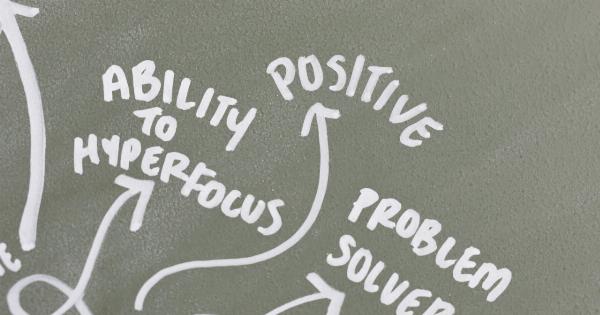Music has long been celebrated for its ability to stir emotions, inspire imagination, and enhance various activities. From exercise routines to social gatherings, music has the power to create a mood and energize the atmosphere.
However, when it comes to activities that require deep focus and creative thinking, the relationship between music and productivity becomes more complex.
The Distraction of Melodies
One of the primary ways in which music can inhibit creativity is through its potential to distract the mind. While some individuals may find music helpful in creating a background ambiance, it can inadvertently draw attention away from the task at hand.
The melodies, lyrics, and rhythms can become hooks that divert focus, preventing the brain from fully engaging in the creative process.
Research conducted by psychologists at the University of Wales supports this idea. They found that the cognitive demands of music processing can interfere with other cognitive tasks, including those that require creative thinking.
This distraction can disrupt the flow of ideas and hinder the ability to generate innovative solutions.
The Influence of Mood
Music has a profound impact on our emotions and can easily evoke specific moods or feelings. However, when it comes to activities that necessitate creative thinking, maintaining a neutral or flexible emotional state is often crucial.
Emotions that arise from music can shape our thought processes in ways that may not align with the demands of the task.
For instance, deeply melancholic music may inspire sadness or introspection, which may hinder the ability to think optimistically and generate fresh ideas.
Similarly, energetic and fast-paced music can induce excitement or restlessness, making it difficult to focus and sustain attention on a specific creative endeavor.
Furthermore, the presence of lyrics in music can be particularly detrimental to creativity. The brain tends to process linguistic information automatically, even when it is not the primary focus of attention.
Consequently, listening to music with lyrics during creative tasks can impede the generation of original ideas as the brain involuntarily processes and comprehends the words.
The Power of Silence
While music can undoubtedly enhance certain activities, sometimes the absence of sound can be even more conducive to creativity.
The power of silence should not be underestimated, as it allows the mind to wander freely and engage in deeper introspection. In these pockets of quiet, the brain can make associations, connections, and leaps of imagination, leading to novel and innovative ideas.
Recent studies conducted by researchers at the University of California, Santa Barbara, have shown that silent environments can enhance creative thinking and problem-solving abilities.
When participants were exposed to periods of silence in between tasks, they demonstrated significantly more creative insights compared to those continuously exposed to background music or noise.
Tailoring Music Choices for Creativity
Although generalizations about the effects of music on creativity can be made, it is vital to consider individual differences in musical preference and sensitivity.
What may distract one person’s thought processes may act as an enhancer for another’s. Therefore, it is worth experimenting with different musical styles and genres to ascertain which ones are most compatible with individual creative endeavors.
Instrumental music without lyrics is often suggested as a compromising option, as it reduces the interference caused by cognitive processing of linguistic information.
Classical music, ambient soundtracks, and instrumental jazz are commonly recommended for tasks requiring concentration and creative thinking.
However, it is important to note that the relationship between music and creativity is a nuanced one.
While certain activities may benefit from music, such as brainstorming or idea generation, more complex and demanding creative tasks, such as writing, coding, or designing, usually require a higher level of concentration and immersion in order to achieve optimal results.
Minimizing Distractions for Optimal Creativity
In addition to the potential distractions posed by music, it is essential to create an environment that minimizes other interruptions and disturbances. Here are a few key strategies:.
1. Find a Quiet Space
Choose a workspace or environment that is generally free from external noise and distractions. This can help create the ideal conditions for deep focus and creative thinking.
2. Use Noise-Canceling Headphones
If you must work in a noisy setting or a space with unpredictable sound levels, noise-canceling headphones can effectively minimize distractions and promote concentration.
3. Set Clear Boundaries
Communicate your need for uninterrupted time to colleagues, family members, or roommates, and establish clear boundaries to ensure minimal disruptions while engaged in creative tasks.
4. Practice Mindfulness Techniques
Mindfulness exercises, such as deep breathing or meditation, can help declutter the mind and improve focus. Allocate a few minutes each day to cultivate a calm and centered mindset, which can enhance creativity.
5. Experiment with Music Alternatives
If complete silence feels too empty, try exploring other alternatives to music, such as natural soundscapes or ambient noise generators. These can create a subtle background hum that fosters a conducive environment for creativity.
Conclusion
The effects of music on creativity are highly individualized, and what works for one person may not work for another.
While music can undoubtedly enhance certain tasks and create a favorable atmosphere, it also has the potential to inhibit creativity by acting as a distracting force or eliciting emotions that may be inconsistent with the requirements of the task at hand. Silence, on the other hand, can provide a fertile ground for deep introspection and creative thinking, enabling the brain to make innovative connections and generate novel ideas.
Striking the right balance and experimenting with different approaches is key in harnessing the power of music for creativity.




























